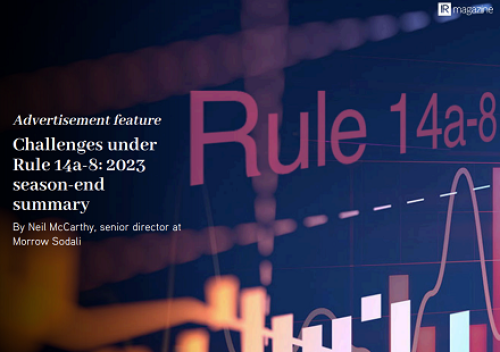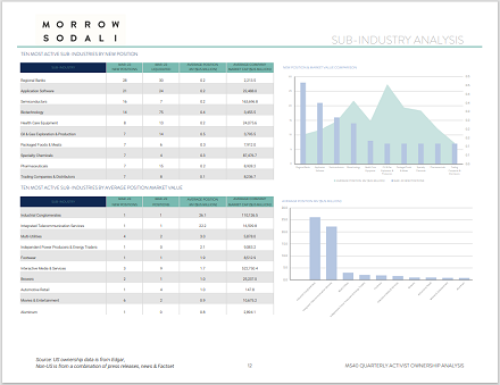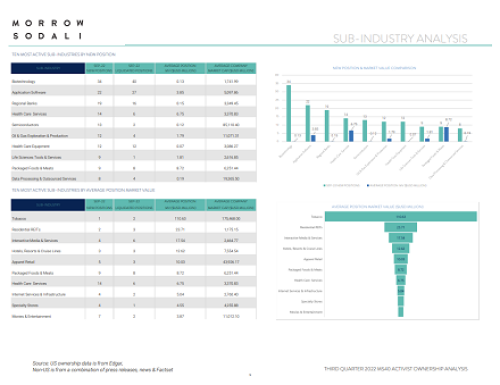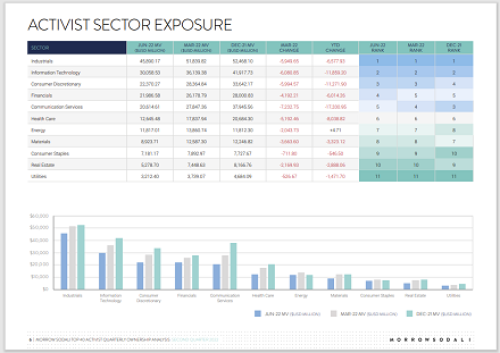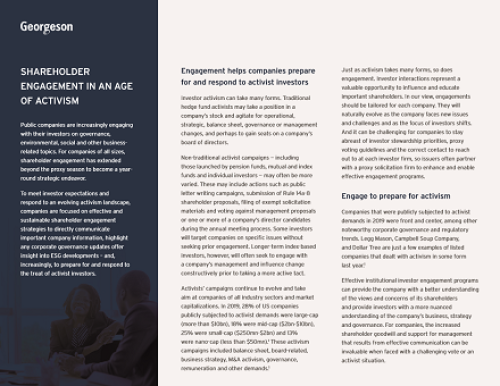The chair of NIRI says she has not seen activists leverage ESG as often as traditional shareholder proposals in the 2022 proxy season so far and the ESG proposals that are tabled are rarely passed.
IR Magazine caught up with Victoria Sivrais, chair of the US association of IROs and a partner at the strategic communications firm Clermont Partners, during the NIRI 2022 Annual Conference this month.

Asked for her thoughts on the trends she is spotting this proxy season, Sivrais said activism has ‘really jumped up in the last couple of months, which I think is really interesting, and a lot of people thought ESG was going to be what they hung their hat on from an activist perspective. I haven't seen that come to fruition, that’s not to say it won't.’
Instead, Sivrais described activism as being ‘very traditional’ this proxy season, focusing on business operations, valuation, management teams and the strategies for how they are going to proceed with those proposals. ‘It's been a little bit more of the same, but the climate risk proposals, the say on climate, the climate disclosure proposal, the human capital disclosure proposals, those have increased pretty significantly, although most of them are not passing,’ she added. ‘That's the next leg, now we're seeing an influx of new proposals around that, but next year and the year after, I think you're going to start to see more support for those as we go forward.’
 The chair’s observations chimed with new research from Planet Tracker. The non-profit financial think tank found the number of ESG proposals tabled for discussion at annual meetings shot up 80 percent in 2021 but the vast majority were governance-related and environmental or social.
The chair’s observations chimed with new research from Planet Tracker. The non-profit financial think tank found the number of ESG proposals tabled for discussion at annual meetings shot up 80 percent in 2021 but the vast majority were governance-related and environmental or social.
Sivrais noted there had been ‘headline-grabbing activism’ that everyone sees involving mega caps and big-name activists this proxy season. However, ‘what I actually I have been seeing is more of what I would call quieter activists, that are really kind of working behind the scenes to try and affect change without going into the full-blown proxy battle. That has surprised me. It’s not always ValueACT or Elliott, it's these smaller firms that want to affect change; they know they can and they're using a similar playbook.’
The full interview with Sivrais and Matt Brusch, newly appointed president and CEO of NIRI, will be in the fall issue of IR Magazine.

